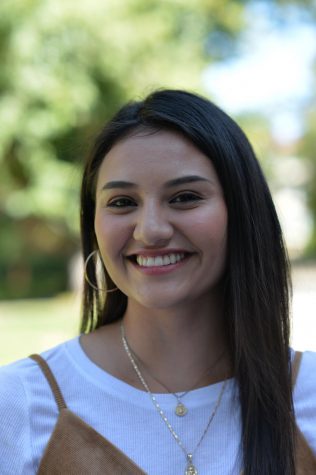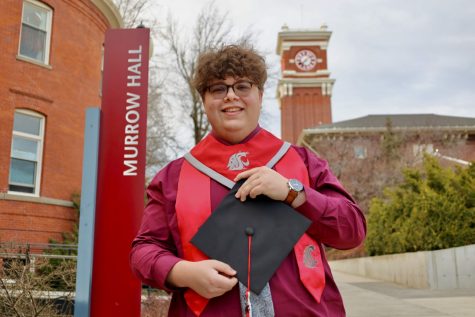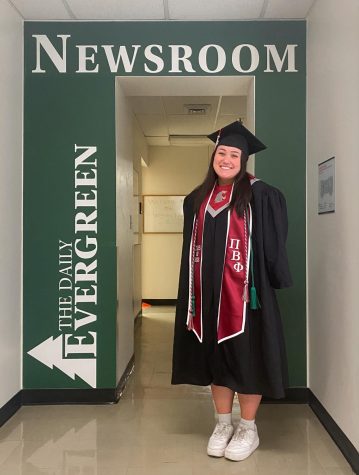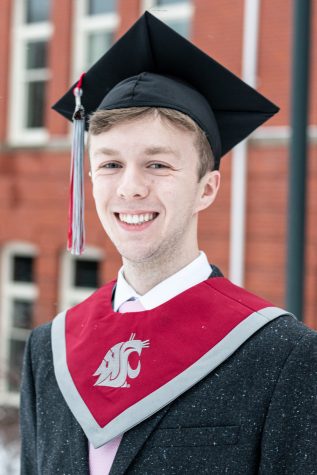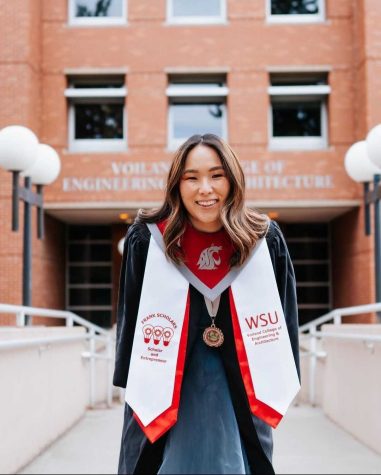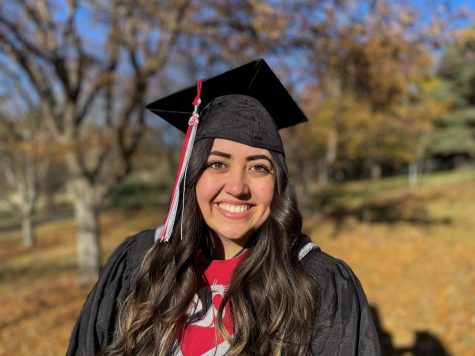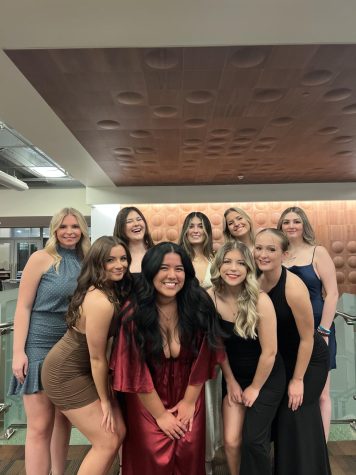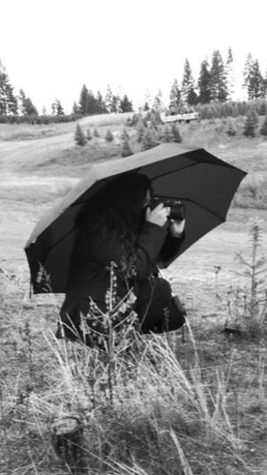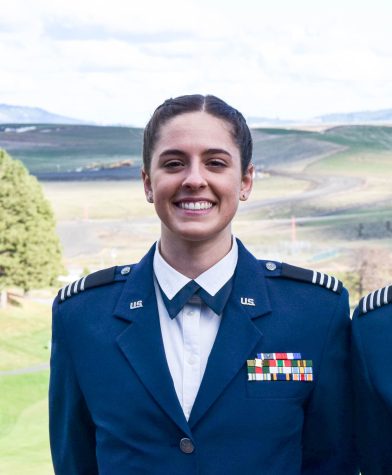First-generation senior reflects on journey through college
As second-youngest of five children, hopeful law student says she took advantage of her opportunities
“Finding people that looked like me and came from similar backgrounds was one of the best moments,” says Synthia Alcantar, a first-generation political science student.
May 3, 2019
As the first in her family to attend college, Synthia Alcantar said her background and experiences have motivated her to continue to pursue her goal of attending law school.
Synthia will graduate on Saturday with a degree in political science pre-law and a minor in women’s studies. She plans to attend law school.
Her parents always wanted her to obtain a degree, but the pursuit of higher education outside of a community college was not something that was encouraged in their traditional home, she said.
Synthia is the second-youngest in a family of five children. Her parents and older siblings were unable to pursue an education, Synthia said.
At first, she did not consider attending a university. Synthia said the turning point was when she took an anthropology class, which discussed genital mutilation in other countries, when she attended Columbia Basin College.
“I was just so shaken by that because I didn’t really think outside of my bubble, and that class really opened up my mind to a bunch of different things,” Synthia said.
She transferred to WSU in 2016 from Columbia Basin College.
“It was a hard adjustment for me to try to realize that I wasn’t home anymore,” Synthia said. “There wasn’t that comfort of my language, my culture, my background. It doesn’t exist here.”
She said it was difficult at first to find her place on campus as a transfer student.
“Joining a Latina-based sorority was probably one of the most life-changing because this place isn’t very inclusive. It doesn’t represent a lot of minorities,” she said. “Finding people that looked like me and came from similar backgrounds was one of the best moments.”
This year, she received the rose award from her multicultural sorority, Kappa Delta Chi. The rose award is the highest recognition a member can receive. Recipients show excellence within the organization and in the community.
Synthia said she also had to figure out what she wanted to do for herself and her community and soon realized she wanted to be outspoken.
“One thing that I was called a lot was ‘radical,’ ” she said.
Synthia said she used to be more passive, and if someone had conflicting ideas she would be more dismissive of it. Now, Synthia is more vocal about issues concerning subliminal racism around campus, first-generation and undocumented students.
“That meant a lot of people who were used to passive me, didn’t like the new version of me,” Synthia said.
Wendy Alcantar, a sophomore student majoring in psychology and Synthia’s youngest sister, said she was motivated to see Synthia transcend and be active in reaching her goals.
“The reason she set out in furthering herself and has kept me inspired, is that it wasn’t just for her own achievement and attainment in life, but to pave the way and open those doors for me so that I wouldn’t have to go through the same things she went through,” Wendy said.
Synthia’s background and family dynamic has pushed her to continue, especially when she is presented with obstacles in her education.
“Coming from a gang life, it was scary. You always have to be on your toes because you never know when someone will try to hurt you to hurt your brothers or your family members,” Synthia said.
Being able to experience that allowed her to be empathetic toward people who come from a similar background, Synthia said.
“You read newspaper articles about crime in your neighborhood, and you’re like, ‘Damn, why do they behave that way? I don’t see the need for that violence’ — you question it in terms of why,” Synthia said. “I got to see the other side.”
She said it was one of the main reasons she decided to study pre-law. There are gray areas, but a lot of people see things in black and white when it comes to the criminal justice system and people.
Synthia said becoming an ASWSU senator was one of her most notable accomplishments.
“I never thought that I would’ve ended up in that room with a nameplate, and then becoming vice chair of our committee,” she said.
The ability to pass a resolution to address issues of sexual misconduct and violence made her feel like she had been able to do something for others, Synthia said.
Wendy said she witnessed the countless hours of work Synthia put into the piece of legislation.
“I got to see her most nights crying, or those small moments where she really put in that effort,” Wendy said. “To see it pass, she knew she did something at that time that really mattered.”
There was a political science class Synthia found to be extremely difficult. She said the class made her question her career path, but she spent hours in the teaching assistant’s office, speaking to students and studying.
“I got here on my own. I can do it on my own,” Synthia said.
She said there were moments where she wanted to quit, but it was those moments that helped her get to where she is now.
She said her goal is to attend law school and focus on criminal law.
“My parents wanted me to be educated, but I don’t think they ever envisioned me doing this,” Synthia said. “They’re over-the-moon ecstatic.”


